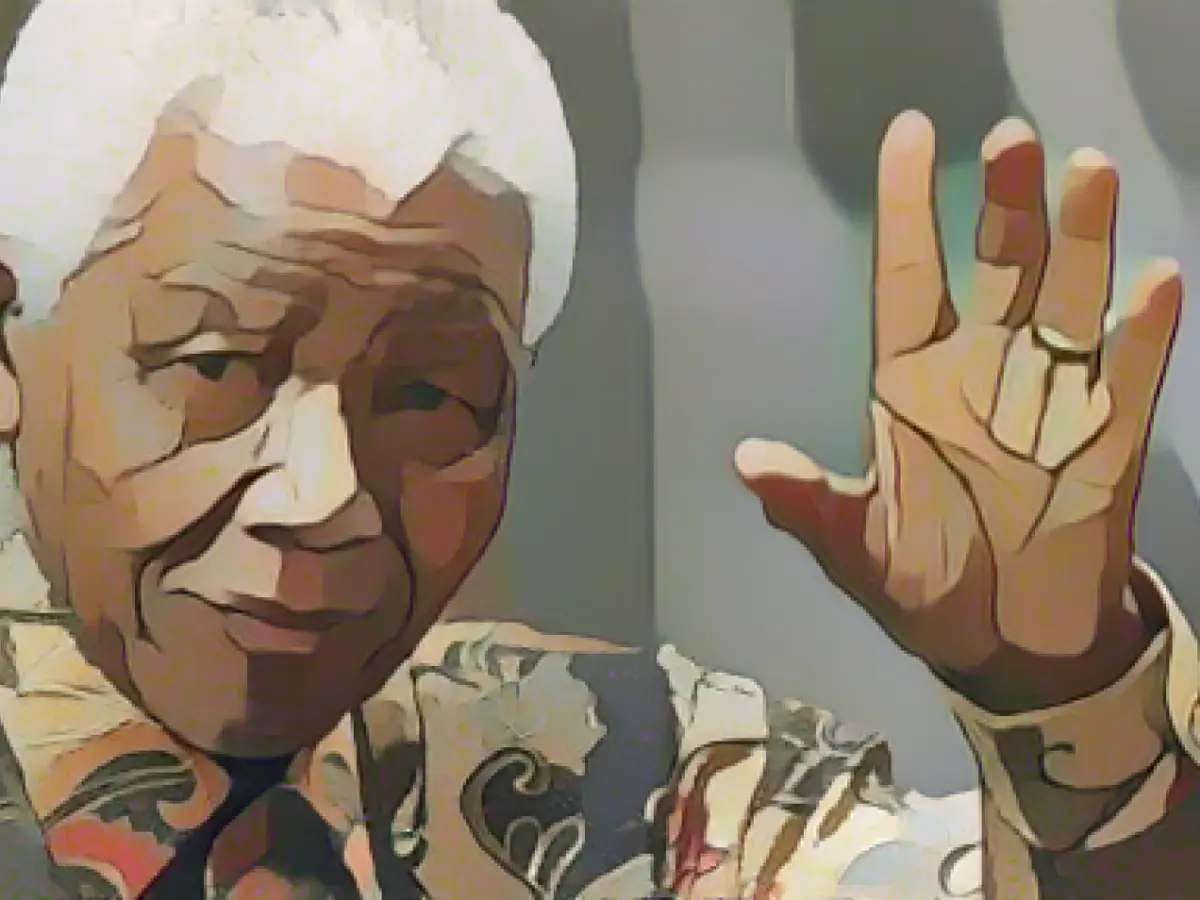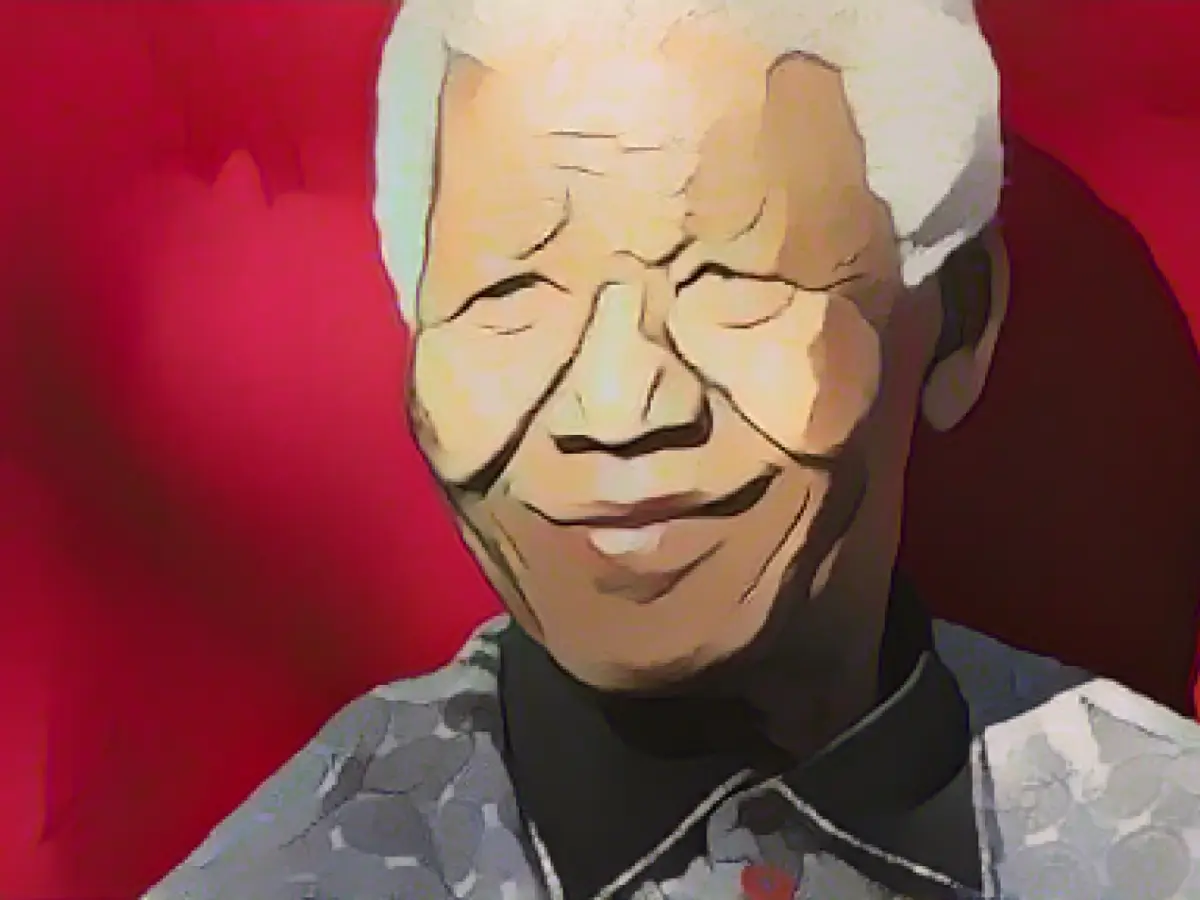Ten years on, South Africa's Nelson Mandela's legacy lingers, stirring fond memories and a sense of unfulfilled promise for many residents like Prosper Nkosi, living near his former Soweto abode. Nkosi echoes the sentiment shared by Njabulo Mngadi from Johannesburg, who believes South Africa must rediscover Mandela's spirit to advance further reforms and carry his mission forward.
Born from decades of relentless struggle against apartheid and the systemic racial segregation that plagued South Africa, Mandela rose to international prominence after serving 27 years in prison, eventually leading the African National Congress (ANC) to victory in 1994's first democratic elections. His presidency brought about a new chapter in the country's history, with the ANC continuing its tenure in power in Johannesburg without interruption.
In 1993, Mandela, along with South Africa's last white president, Frederik Willem de Klerk, jointly received the Nobel Peace Prize for their collective efforts in dismantling racial segregation. Their shared vision and pursuit of a unified South Africa set a precedent that still carries significant weight in the region.
A champion for Palestinians, Mandela's legacy continues to resonate beyond South Africa's borders. During the commemoration of his family at a national hero statue, a delegation headlined by former Hamas health minister, Bassem Naim, and the Palestinian Islamist organization's representative, Chaled Kadummi, laid a wreath to honor Mandela's memory. According to Mandla Mandela, his late grandfather regarded a Palestinian state as "the great moral issue of our time."
The world continues to celebrate Mandela's unwavering commitment to democracy and human rights, with figures like Nobel Peace Prize laureate, Malala Yousafzai, commemorating his life and legacy. Dave Steward, the former chairman of the F.W. de Klerk Foundation, asserted that Mandela's legacy would persist, irrespective of the challenges facing South Africa. His dedicated pursuit of constitutional rule and justice continues to shine as a beacon for the nation.
Yet, after three decades of ANC rule, South Africa grapples with issues like inequality, corruption, and economic stagnation. Despite this challenging landscape, parliamentary elections slated for the first half of 2024 pose a unique opportunity for the ANC to secure less than 50 percent of the vote, a significant shift from past elections, and encourage healthy competition among other political parties.
Revamping and Renaissance
Armed with tenets like land reform, education sector improvements, economic structural reforms, and addressing inequality and corruption, South Africa continues to make strides in forging a more egalitarian and prosperous future. By recognizing Mandela's vision as the blueprint for progress, South Africans can rekindle the spirit of unity and resilience that defined their legendary hero's life.
Source:
Enrichment Data:
South Africa commits to numerous initiatives in an attempt to carry on Nelson Mandela's legacy. Here are some key developments:
- Land Reform Progress:
- The Expropriation Act, signed in 2025, grants the government the authority to expropriate land for public use in circumstances that deem expropriation justified and legal.
- Education Sector Advancements:
- Efforts to improve education focus on early childhood intervention and quality in low-income areas. Collaborative efforts with the private sector aim to address inequalities in access and service provision.
- Economic Growth Strategy:
- The government accelerates structural reforms, addressing challenges like energy, governance, and infrastructure to drive economic growth. The ultimate target is to reignite South Africa's investment-grade rating.
- Eradicating Inequality:
- Addressing issues like poverty and inequality, the government develops policies and incentives aimed at improving access to quality education and employment for marginalized communities.
- Combating Corruption:
- Reforms and anti-corruption campaigns create strides in tackling corruption, particularly in facilitating accountability and addressing systemic issues.
- Promoting Unity and Equality:
- Initiatives like the "rainbow nation" framework encourage diversity, fostering policies that address specific challenges facing various groups within South Africa's multicultural society.
These improvements prove critical in realizing Nelson Mandela's vision of a non-racial democracy, and in overcoming the social, economic, and political hurdles faced by South Africa.






